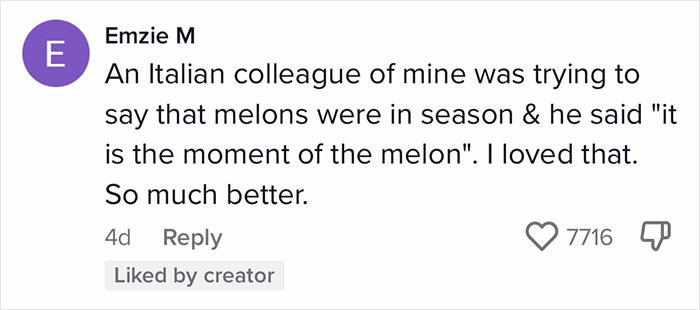Maybe speaking isn't the hardest part
An unspoken struggle we all face
Welcome, aspiring polyglot! Belief that speaking is the most difficult part of learning a new language is incorrect. There is a certain fear that comes with making mistakes while speaking, but that is different than overcoming an inability to understand what is being said. Since most people learn a language from one person, they believe they can understand the language because they can understand that one person. This couldn’t be further from the truth. Listening comprehension is difficult and demands a holistic approach.
Mastering tempo and cadence
Listening to the same person when you are learning a language is dangerous and this is something many schools struggle with because, of course, the teacher is the one the students hear most often. The problem is that when someone gets used to a certain voice, cadence, and vocabulary it can be difficult to transfer that to other people. Those students then go out and find that they struggle to understand what other native speakers are saying.
Even worse, when you go from one country to another, or even one part of a country to another part, you will come across new dialects. These dialects come with new grammar rules and new vocabulary words that will likely only be useful in those regions. For that reason, when you are taking the time to learn a new language you should start with the dialect you will hear the most often and then expand out based on utility.
A final consideration you will need to make when you are picking and choosing your stimuli is that people speak differently depending on the situation. In high stress situations people will speak faster most of the time. Whereas in a relaxed environment people will naturally slow down, and they will be a lot more willing to slow down when asked. Sports caster speak extremely fast and use lots of slang, documentaries annunciate and focus on pronunciation, but they will use high level vocabulary.
Understanding groups
Beyond simply learning all of the ways people can speak, you have to learn to understand groups of people as they speak. One problem people run into often is learning to speak one on one only to lose all confidence when thrown into a group situation. For more on learning to speak in groups, be sure to check out this article:
Playing Games Can Help You Become Bilingual
Welcome, aspiring polyglot! Of all the things that helped me learn the languages that I know, playing cards with my friends probably made the biggest difference. While learning to count is fantastic, understanding how people interact with one another and seeing and hearing conversations between people, even before you understand them, is helpful. When children are small, before they learn their native language, they are often read to almost every day.
Learning to speak in groups is going to be very similar to learning to speak one on one. At first you will catch one or two words, then you will be able to catch entire sentences. The hard part is realizing that you have to stop translating in your head and just understand what the words mean. If you ever want to speak in a group then you have to be able to add to conversations as they take place which means no time to think and translate.
Catching just the gist of a conversation can be a perfect way to start. Focus on understanding the point of the conversation rather than the details. Over time you can get more and more, but you have to start somewhere. Sitting in silence is an option too, but try to push yourself out of this comfort (or discomfort) zone as quickly as possible. Even adding one or two words to a conversation can be more than enough to stimulate and develop lasting relationships with new people.
Application supplementation
Language learning apps can be helpful, but they cannot teach you a language in and of themselves. There has to be more to your language learning routine than just hopping on an app for an hour. With that in mind, they do make perfect resources for supplementation. Fortunately, there is an app for just about everything. For people who struggle doing anything that is not gamified, there is Duolingo. For people who still have a Blackberry phone, there is Rosetta Stone. For people with Linux, there is clozemaster.
Whatever your need, there is an app for that. Most people, however, struggle when speaking to native speakers because they never hear natives speak. There is an app for that, too, it turns out. Hearing native speakers talk, hearing them repeat themselves without the embarrassment that comes with having to ask, and steady progress towards ever more difficult conversations all included. I am super excited to announce a Second Language Strategies partnership with Glossika!
After spending the last month and a half with Glossika, I feel confident recommending this app to all language learners, but especially those who don’t live in a country where their target language is vastly spoken. Glossika connects language learners with native speakers via audio recorded by native speakers who certainly don’t hold back. They speak fluidly as if they were having a conversation with someone in their day to day life. This is exactly what people who are struggling with listening comprehension need.
My fear is always that people will get used to a single voice and fail to speak when the time comes because they are caught off guard. This happened to me when I was living in Costa Rica and I know how difficult it can be to overcome. With Glossika this is not a problem as you will be able to hear all types of people speaking your target language. Using code BTO24 at checkout will get you 30% off the Glossika annual plan.
I will have a complete Glossika review coming out soon. As with my Duolingo review, I won’t hold back and if you prefer to read that beforehand, keep an eye out for it coming out soon. Overall, I really enjoyed using it myself and I tested it at a few different levels with a few different languages. It is one of the most effective ways to “get reps” that I have come across and I know many people struggle when it comes to getting listening comprehension reps with native speakers.
Conclusion
Listening comprehension is, unfortunately, far more complex than most people believe it to be. Yes, understanding one person is great, but you will never just speak to one person. Public schools struggle because most of their students will never spend time around native speakers and thus get used to speaking to and hearing from one voice. This pitfall can completely destroy a person’s confidence when they fail to understand something they feel they should be able to understand simply because it is a new speaker.
Unless you live somewhere you can hear and use your target language on a daily basis, you are going to struggle getting adequate reps. Glossika is the perfect solution for this and it can completely destroy the fear of being unable to understand native speakers. You deserve to have the confidence to attack any challenge and stacking your wins will help you get to that point. Language apps should supplement your wins, so start stacking.
Requests
If you have anything you would like covered you can reach out to me on X, Instagram, or at odin@secondlanguagestrategies.com.
Additional Resources
Don't want to spend time playing catch up? Pick up the 3 Months to Conversational book now available on Amazon! 3 Months to Conversational
For more long form content be sure to check out the website!
Subscribe for new content on YouTube and TikTok!
Learning Spanish? We have begun aggregating resources in you Spanish Resource Newsletter!
Don't forget to pick up your very own French Language Logbook or Spanish Language Logbook!






![English Language: "They're on their way there" People learning English: mes witty AN [visible confusion] - iFunny English Language: "They're on their way there" People learning English: mes witty AN [visible confusion] - iFunny](https://substackcdn.com/image/fetch/$s_!V5rU!,w_1456,c_limit,f_auto,q_auto:good,fl_progressive:steep/https%3A%2F%2Fsubstack-post-media.s3.amazonaws.com%2Fpublic%2Fimages%2F4de921a9-6679-4aa7-bda7-ea74b90710f9_1080x994.jpeg)
